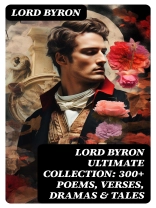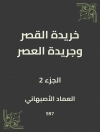The ‘LORD BYRON Ultimate Collection: 300+ Poems, Verses, Dramas & Tales’ presents a comprehensive anthology of one of the leading figures of the Romantic era. Byron’s literary style is characterized by its fervent emotional depth, innovative use of language, and a deeply individualistic perspective, which collectively explore themes of love, nature, and existential anguish. His works, ranging from the satirical edge of ‘Don Juan’ to the haunting melancholia of his shorter verses, reflect the socio-political turmoil of early 19th-century Europe, resonating with readers through their poignant reflections on the human condition. Lord Byron, born George Gordon Byron in 1788, was both a brilliant poet and a compelling social figure, often engaging with the political ideologies of his time. He was a quintessential Romantic, whose own tumultuous life—marked by scandal, glamor, and adventure—informed his explorations of passion and rebellion. His travels across Greece and the East enriched his imagination, allowing him to romanticize both people and places, giving his work an extraordinary vibrancy and immediacy. This ultimate collection is essential for readers and scholars alike, as it encapsulates Byron’s profound impact on literature and culture. Whether you are delving into the turbulence of his dramas or the elegance of his lyrical verses, Byron’s collection offers timeless insights that continue to resonate, rendering it a pivotal read for anyone interested in the power of poetry and the Romantic legacy.
About the author
George Gordon Byron, commonly known as Lord Byron, was a seminal figure of the Romantic Movement and one of its most captivating and influential characters. Born on January 22, 1788, Byron inherited his title at the tender age of ten, thereby becoming the 6th Baron Byron of Rochdale. His literary prowess swiftly propelled him to stardom with the publication of ‘Childe Harold’s Pilgrimage’ (1812-1818), a work that earned him celebrity status amongst the English reading public. Byron’s prolific output epitomized the grandeur, melancholy, and revolutionary spirit characteristic of the Romantic era. Exceptional amongst his corpus is the comprehensively compiled ‘LORD BYRON Ultimate Collection: 300+ Poems, Verses, Dramas & Tales, ‘ which pays homage to his narrative poems, lyrical works, and famed satirical and dramatic pieces. His poetical style often fused swaths of melodrama with biting wit and a penchant for the Byronic hero—flawed, brooding, and defiant. Enthralled by the ideals of liberty and personal freedom, Lord Byron’s life was as tempestuous and passionate as his verse. His reputation, marred by scandal and excess, never overshadowed the ingenuity of his creations or the impact he had on subsequent generations of poets and writers. Byron died on April 19, 1824, in Missolonghi, Greece, where he was aiding the Greek War of Independence, further cementing his legacy as a cultural icon of romantic individualism and heroic endeavor.












